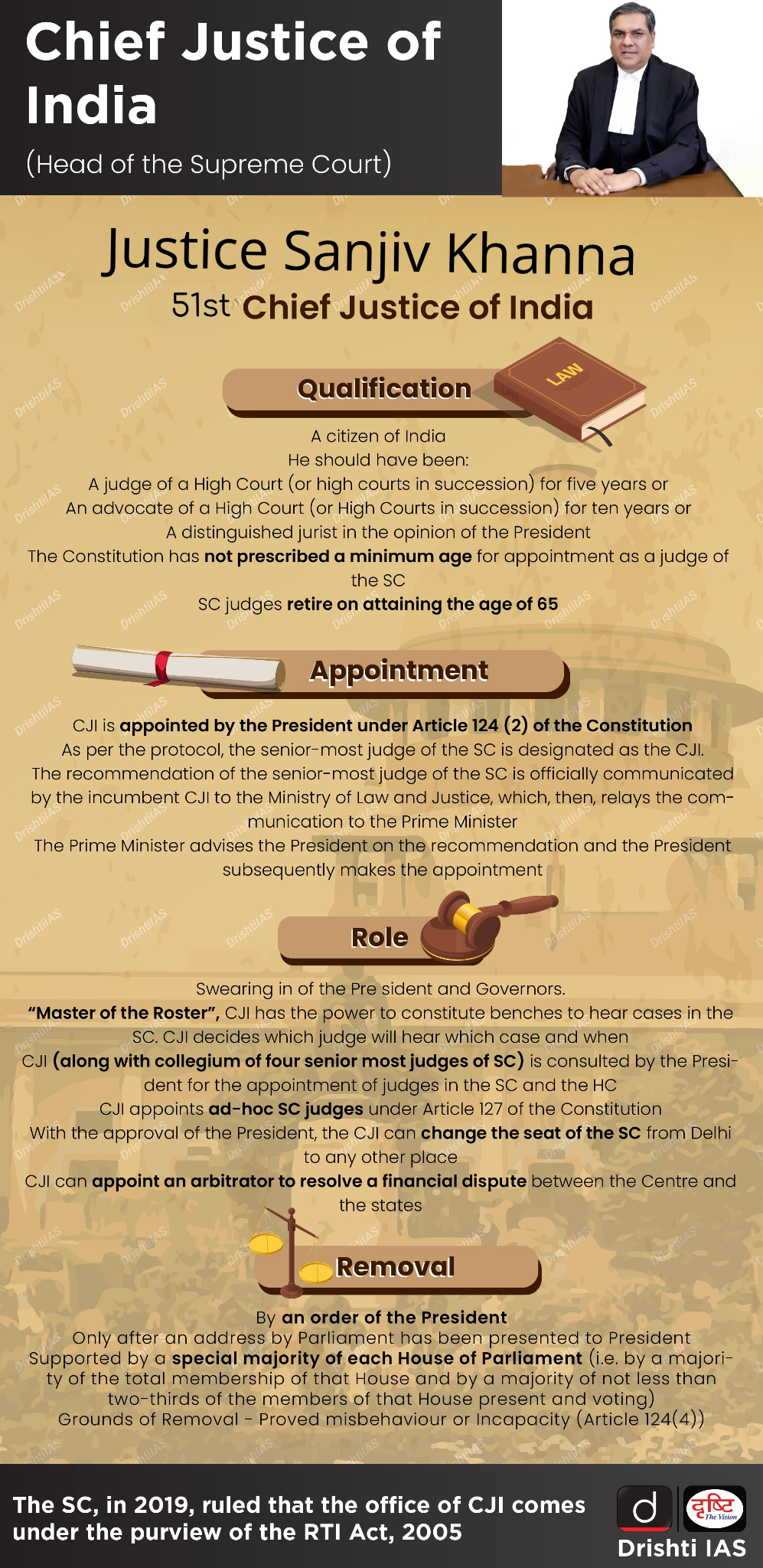Uttar Pradesh Switch to Hindi
Criminalization of Civil Disputes
Why in News?
Recently, Chief Justice of India Sanjiv Khanna criticized the Uttar Pradesh government for the increasing tendency of converting ordinary civil matters into criminal cases .
Key Points
- Reasons for Criminalization of Civil disputes:
- Desire for speedy justice: Frustrated by delays in the civil justice process, litigants resort to criminal litigation in order to exert pressure on the other party and obtain a quick resolution.
- Strategic use of criminal sections: There is a growing tendency to criminalise civil cases by using criminal sections such as Section 420 (cheating), 406 (criminal breach of trust). The aim is often to gain personal or political advantage.
- Lack of legal understanding: Many times the police and investigating agencies are not clear about the difference between civil and criminal cases. As a result, even normal contractual or business disputes are registered as criminal complaints.
- Delay in judicial process: It can take years for decisions to be made in civil courts, which discourages litigants. In such a situation, they file a criminal case in the hope of getting quick relief and put pressure on the opposing party so that the dispute can be resolved quickly.
Difference between civil dispute and criminal dispute:
|
Points of Difference |
Civil Dispute |
Criminal Dispute
|
|
Nature of the dispute |
● Disputes usually involve private parties or organizations seeking to resolve disagreements over legal rights or obligations. ● For example, contract disputes, personal injury claims, family law matters (divorce, child custody) and property disputes. |
● These include violations of laws that are considered crimes against the state or society. Crimes are prosecuted by government authorities and aim to punish the offender for his wrongdoing. ● For example, theft, assault, murder and drug offences. |
|
commencement of proceedings |
● Usually initiated by private individuals or entities (plaintiffs) who file a suit against another party (defendant) seeking damages, injunctions, or other remedies. |
● Initiated by the government, represented by a prosecutor, who files charges against a person or entity accused of committing a crime. |
|
burden of proof
|
● The burden is usually on the plaintiff, who must establish his or her case by a preponderance of the evidence. ● This means that they must show that it is more likely than not that the defendant is liable. |
● This burden is on the prosecution and it must be proved beyond reasonable doubt. ● This is a more demanding standard designed to protect the rights of the accused. |
|
Purpose of the proceedings
|
● To provide remedies to the injured party or parties. ● Remedies may include monetary compensation (damages), specific performance, or injunction. |
● To punish the criminals for violating the laws and to deter others from committing similar crimes. ● Rehabilitation and security of society are also important goals. |








%20MPPCS%202025%20Desktop%20E.jpg)
%20MPPCS%202025%20Mobile%20E%20(1).jpg)










.png)
.png)











 PCS Parikshan
PCS Parikshan


